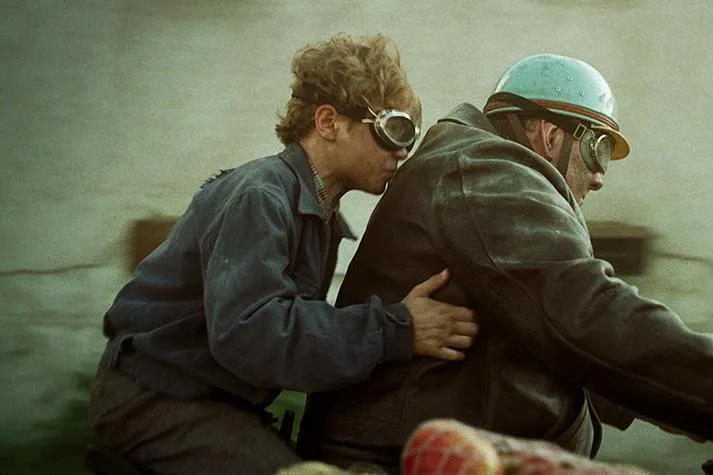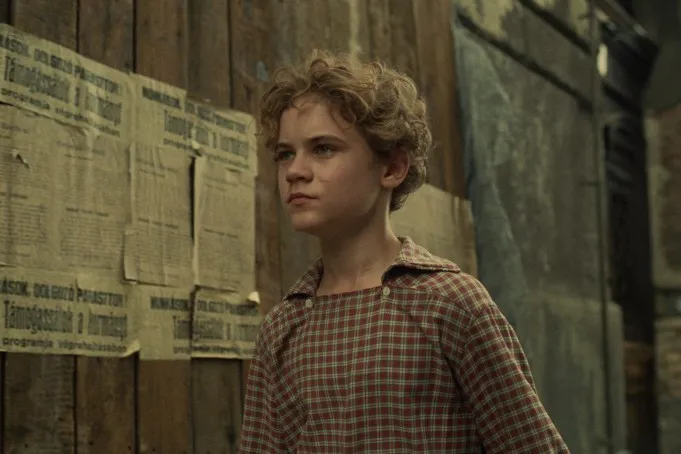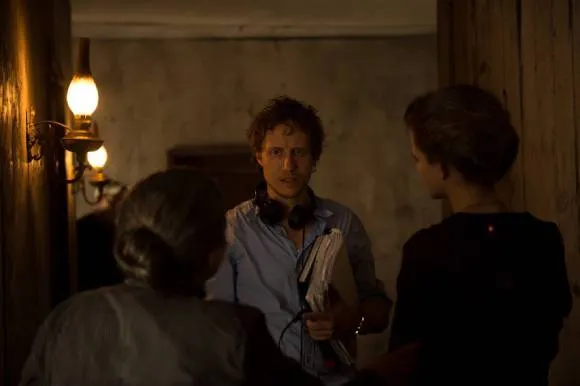

‘Orphan’: Laszlo Nemes Reimagines Himself Through the Traumas of the 20th Century
Hungarian filmmaker László Nemes returns to the international stage with his highly anticipated feature, Orphan. The movie, set to premiere at the Venice Film Festival, marks Nemes’ third feature film and perhaps his most personal and intimate story to date. Known for powerful works like Son of Saul and Sunset, Nemes now turns to his own family history for inspiration, crafting a story deeply rooted in Europe’s turbulent 20th century traumas.
A Return to Venice with ‘Orphan’
The world premiere of Orphan takes place on August 28 in Venice, a festival that has long championed arthouse cinema. Nemes is no stranger to success at prestigious festivals. His debut feature, Son of Saul (2015), not only won the Grand Prix at Cannes but also secured the Oscar for Best International Feature Film. His sophomore film, Sunset (2018), took audiences back to pre–World War I Hungary, examining a civilization on the verge of collapse.
With Orphan, Nemes shifts focus to the post–World War II era, telling a story of identity, trauma, and the weight of family secrets.
The Storyline of ‘Orphan’
Set in Budapest, 1957, just after the failed uprising against the Communist regime, Orphan follows the journey of Andor, a young Jewish boy. Raised by his mother, Andor grows up believing idealized tales about his deceased father. His world shatters when a brutish stranger arrives, claiming to be his real father.
The film explores themes of:
-
Childhood innocence confronting harsh realities
-
Generational trauma tied to both the Holocaust and Communist oppression
-
The search for truth and self-identity
Nemes himself has described Orphan as a “chronicle of a child’s coming to terms with his own family history and his own self,” reflecting the broader turmoils of 20th-century Europe.
A Personal Connection to Family History
What sets Orphan apart is how deeply personal the story is for Nemes. The director openly shared that the film is inspired by his own family history.
He explains:
“This is indeed a story grounded in family history, my family history, and it has haunted me. A 12-year-old boy in 1957, who was born during the last month of the Second World War and who is waiting for his dad to return from the camps, makes up this kind of fantasy father figure. He meets a brutish man from the countryside, who claims to be his real father.”
Nemes compares the story to Hamlet, describing it as an archetypal narrative of an “usurping father” and a child struggling to face reality. This Shakespearean echo, paired with the very real historical trauma of mid-20th century Hungary, gives Orphan a mythical yet grounded resonance.
Casting Choices and Performances
Casting was a crucial part of bringing Orphan to life. Nemes and his team searched widely, reviewing thousands of self-tapes before finding their leads.
-
Bojtorján Barábas plays Andor, the young protagonist. Nemes describes him as a “natural-born talent” who carries much of the emotional weight of the film.
-
Andrea Waskovics portrays Andor’s mother, delivering a nuanced performance as a woman balancing hope, lies, and survival.
-
Grégory Gadebois takes on the role of the brutish man claiming to be Andor’s father, a complex figure with layers beyond violence.
-
The ensemble cast also includes Elíz Szabó, Sándor Soma, Marcin Czarnik, and Susannah Flood, contributing to the film’s textured portrayal of family and community.
The Cinematic Vision
The visual storytelling of Orphan is crafted by cinematographer Mátyás Erdély, who also worked on Son of Saul. Known for immersive camerawork, Erdély captures both the intimacy of childhood memories and the broader, oppressive atmosphere of post-war Budapest.
Nemes integrates VFX in subtle ways to recreate 1957 Budapest, blending period footage with atmospheric details that enhance realism without overwhelming the story.
Themes of Darkness and Light
Orphan is undeniably a dark film, delving into painful chapters of history and the psychological scars they leave. However, Nemes insists that there is always light within the darkness.
He explains:
“Although it deals with the darkest times of repression and trauma, the film still carries some form of hope. In my pessimism, there’s always a big light of optimism.”
The narrative, while tragic, offers moments of humor, warmth, and resilience—reminding audiences that even in the bleakest times, humanity finds ways to endure.
Historical and Archetypal Resonance
Beyond its personal roots, Orphan speaks to universal human experiences. Nemes emphasizes that the story is not only about his father or his family but about how the traumas of the 20th century shaped entire generations across Europe.
The story resonates as both:
-
A personal journey of one boy grappling with identity and truth
-
A mythical, archetypal tale of fathers, sons, and generational shadows
By framing Orphan as an archetypal story, Nemes aligns it with the timeless role of cinema: to retell essential human stories for new audiences.
The Emotional Weight of Filmmaking
For Nemes, making Orphan was not just an artistic project but also an emotional reckoning. Filming scenes of violence and trauma, particularly a pivotal sequence where Andor’s supposed father erupts in destructive rage, deeply affected the cast and crew.
Nemes shares how silence filled the set after the scene, as everyone felt transported to their own childhood memories. The film aims to evoke that same visceral emotional response from audiences.
Why ‘Orphan’ Matters Today
In Nemes’ view, Orphan is not simply a historical drama. It is a reflection on the present and the future. He argues that if societies fail to confront their darkest histories, they risk repeating them.
“The most despicable side of human actions is still there, and we can recreate the worst place in the world in a second, even in the heart of civilization. That’s what the 20th century taught us.”
By revisiting these stories, Nemes hopes to remind audiences of the fragility of civilization and the need for collective memory.
The Power of Cinema
For Nemes, cinema is more than entertainment—it is a vital medium for storytelling that preserves civilization’s foundations.
He stresses the importance of leaving space for audiences to interpret films themselves:
“What I want the audience to experience is a journey, not just shock value. If you give enough space for the audience, then it can become a subjective, individual experience.”
This philosophy underscores his approach to Orphan, where the story unfolds in a way that invites viewers to engage personally with the narrative.
Conclusion: An Archetypal Tale for Modern Times
With Orphan, László Nemes delivers a deeply personal, historically grounded, and archetypal story that resonates far beyond its Hungarian setting. The film explores the weight of family secrets, historical trauma, and the resilience of the human spirit.
As it premieres at the Venice Film Festival, Orphan stands as both a tribute to Nemes’ family history and a universal story that invites audiences worldwide to reflect on the shadows of the past and the possibilities of the future.
In a cinematic world often dominated by spectacle, Nemes reminds us that cinema’s true power lies in telling stories that matter—stories that confront darkness while offering light, and stories that help us understand who we are.




















